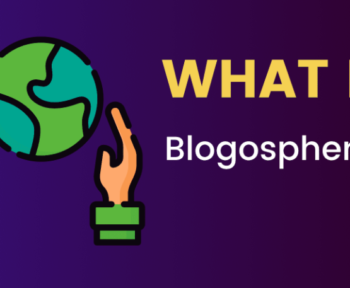The use of artificial intelligence in the operation of the business has become a necessary tradition to enter the 21st century. 47% of digital-savvy organizations — those with high-quality digital marketing practices — already have a well-defined AI strategy. and 84% of business executives agree that the installation of AI allows their company to maintain a competitive advantage.
Understanding Artificial Intelligence(AI)
According to Wikipedia, the term “artificial intelligence” is used to describe machines and computers that mimic the “mental” functions. that people associate with other human minds. such as learning and solving problems.
It is a computer science that tries to understand the meaning of intelligence. and produces a new intelligent machine that thinks, responds, and performs tasks based on the data into which it is programmed, like humans. Some of the functions associated with AI are highly advanced and specialized, such as robots, speech recognition, image recognition, natural language processing, problem-solving, etc.
Thanks to detailed algorithms, AI programs are now more mature, with better performance at a faster rate than ever before. The AI application field has been growing, helping to make great strides in research and development areas around the world.
Table of Contents
Role of Artificial intelligence in transforming Digital marketing future
Artificial Intelligence transforms customer-focused services for digital retailers by increasing efficiency and improving user experience. One common example of AI across the web is the use of chatbots to provide customer service to users.
Where there is a chatbot, users can ask questions about the products and services, or ask for directions to a specific section of the website. After the default welcome message, brands may choose to transfer users to a live chat with a customer service representative to help communication.
1. AI role in managing CRM
Customer Relationship Management (CRM) refers to a business strategy that establishes a customer-focused approach to business. by increasing customer information collection and filtering relevant information.
When CRM, AI technology, and big data technology are integrated, they can maximize the collection of user information from various platforms. Gain an accurate understanding of targeted customers and identify user needs. So, companies can find the most appropriate marketing strategy.
The key is that any behavioral information will be the source of AI analysis. For example, the types of products a person buys, what pages they browse, what tools they use most often, etc.
2. Use of AR/VR in digital marketing as AI
When AI technology meets new visual technologies such as AR and VR, it brings a new application experience.
For example, Pepsi has decided to integrate AI with Augmented reality (AR) by covering computer graphics over the user’s real-world view. using glasses or headset within its few botanical plants. This allows specialists to get information about the equipment,
used and enables them to support professionals. who can see their point of view, making it easier for professionals in remote areas to make repairs and diagnose problems?
This approach can also provide consumers with exciting ways to communicate and learn about the product. Allowing them to build connections. Combining AI with AR / VR not only refreshes the user experience but also builds strong product ownership, which can help create a greater sense of loyalty from product customers.
Is Artificial intelligence the future of marketing?
Application of AI in Digital marketing
When it comes to improving customer experience using AI. four key elements emerge: chat conversations, predictable and,
targeted content, content creation, and image recognition technology. Each of these can help improve customer support and support, as well as deliver more targeted and relevant content. Here’s what you need to know about these brilliant technologies and how they can affect your bottom line. Now, let’s have a look at the application of AI in Digital marketing.
1. AI Chatbots
A chatbot is software that can have conversations (or “conversations”) that use AI to get answers. You may use a chatbot while on the website looking for answers to a question. Chatbots can run audio or text conversations, the latter often appear as chat windows on your computer screen.
Improvements in semantic AI recognition, language processing, and voice conversion technology mean that AI customer service is easy to use and provides a better feel. Compared to actual customer service, AI conversations have many advantages.
AI negotiations empower businesses to go beyond the traditional “one-to-one” customer service approach. Instead, chat rooms can bring “one-to-many”, providing support to many clients at the same time and in different time zones.
2. reCAPTCHA
reCAPTCHA is a CAPTCHA program that enables webmasters to distinguish between personal access to websites. The original version asked users to have a hard time reading text or matching pictures.
Version 2 also asks users to understand the text or match images. when cookie analysis and canvas provision suggest that the page be downloaded automatically. From version 3, reCAPTCHA will never interrupt users and is intended to be automated when users load pages or click buttons. The reCAPTCHA is owned by Google.
The introduction of the app was a collaborative platform for the study of books. especially those that were not easily readable to be scanned by computers. The authentication information used in pairs of phrases from scanned pages. with one famous word used as a verification manager, and a second used to get uncertain word readings.
3. AI-based Digital advertising
There is no doubt that digital advertising is one of the most successful places to embrace artificial intelligence. Use platforms like Facebook, Google, and Instagram to give a great experience. These platforms analyze user information, including gender, age, interests, demographics, and other factors to show them the most relevant ads. and improve the performance of digital ads.
According to eMarketer, the use of digital ads worldwide is estimated at $ 273.29 billion in 2018 and this is expected to increase further. With AI technology, marketers can detect microtrends and predict trends. They can then make strategic decisions about where to put their budgets and to whom.
A good example of AI-based Digital advertising is Google Adsense.
4. AI-based Image recognition technology
Lastly, we have image recognition software as an AI toolkit that you can use to improve customer experience. Photo recognition has been around for a while, and you may have found it on a platform like Facebook. where a friend is automatically tagged in a photo you post. Image recognition software also helps to customize the customer experience.
For example, Macy’s largest retailer has launched Macy’s Image Search. an app that allows customers to upload an image of an item to find similar content within Macy’s assets.
Conclusion:
Artificial Intelligence has integrated into our technology and our lives, making it easier for us as consumers to benefit. But marketers need to learn how to tailor AI benefits to their operations, improve customer experience, strengthen product loyalty,
and increase revenue. And AI is one of the many new tools, styles, and technology vendors must use to stay on top.
Hope! You find this article informative. Don’t forget to discuss in the comment section below, Subscribe and get the latest updates. Thank you.






0 Comments
Inam
Highly informative…
Unknown
Yes it is very important to know more about future
But you can do it From YouTube Tube Mastery and Monetization by Matt Par Click Here 👇
https://www.digistore24.com/redir/299134/Aseettayade
Inam
Amazing content